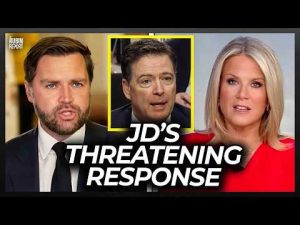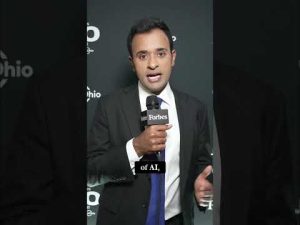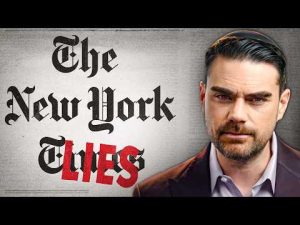In a curious twist during a recent cable news segment, the conversation quickly spun from the hot topic of legal actions against high-profile figures to talking points that seemed to drift away from the core issue. The discussion initially centered around the controversial actions of James Comey, a topic that should be ripe for substantive debate given its implications for justice and political accountability. Yet, the diversion to topics like grocery prices and healthcare seemed oddly misplaced and indicative of a broader tendency to deflect from uncomfortable truths.
Let’s start with the heart of the matter: the rule of law. One can’t help but notice a clear double standard when political allegiances come into play. When Letitia James openly declared her intent to target Donald Trump, many on her side of the aisle seemed unbothered by the overtly political nature of her motives. However, when Trump hints at reciprocity by holding his adversaries accountable in the same manner, the outcry is swift and loud. This inconsistency in applying principles—where it’s acceptable for one side to wield political ambition while the other is vilified for it—undermines the very foundation of justice.
The original question posed during the segment was straightforward: what’s the difference between the two scenarios? Instead of addressing this key issue, the response pivoted to everyday concerns like grocery prices and healthcare. While these are indeed pressing issues for many Americans, they were irrelevant in the context of the discussion at hand. This deflection not only muddied the conversation but also exposed a lack of preparedness that should give pause to both viewers and the politician’s own team.
Laughter from the host at this incongruous answer was not merely entertainment—it was a natural reaction to the dissonance between the question asked and the answer given. It’s crucial that debates remain focused on the subjects at hand. Moving from the serious business of political integrity to unrelated economic issues without a clear connection dilutes the discourse and wastes an opportunity for meaningful engagement. Politicians owe it to the public to provide coherent and relevant answers, not just convenient soundbites.
This exchange serves as a reminder of the necessity for accountability at all levels, not just for those in the hot seat legally, but also for those who represent the public on air. As this political era continues to unfold, perhaps it’s time for a broader reflection on the kind of narrative shaping public debates. After all, when the core question revolves around fairness under the law, it deserves more than just tangential talking points.







